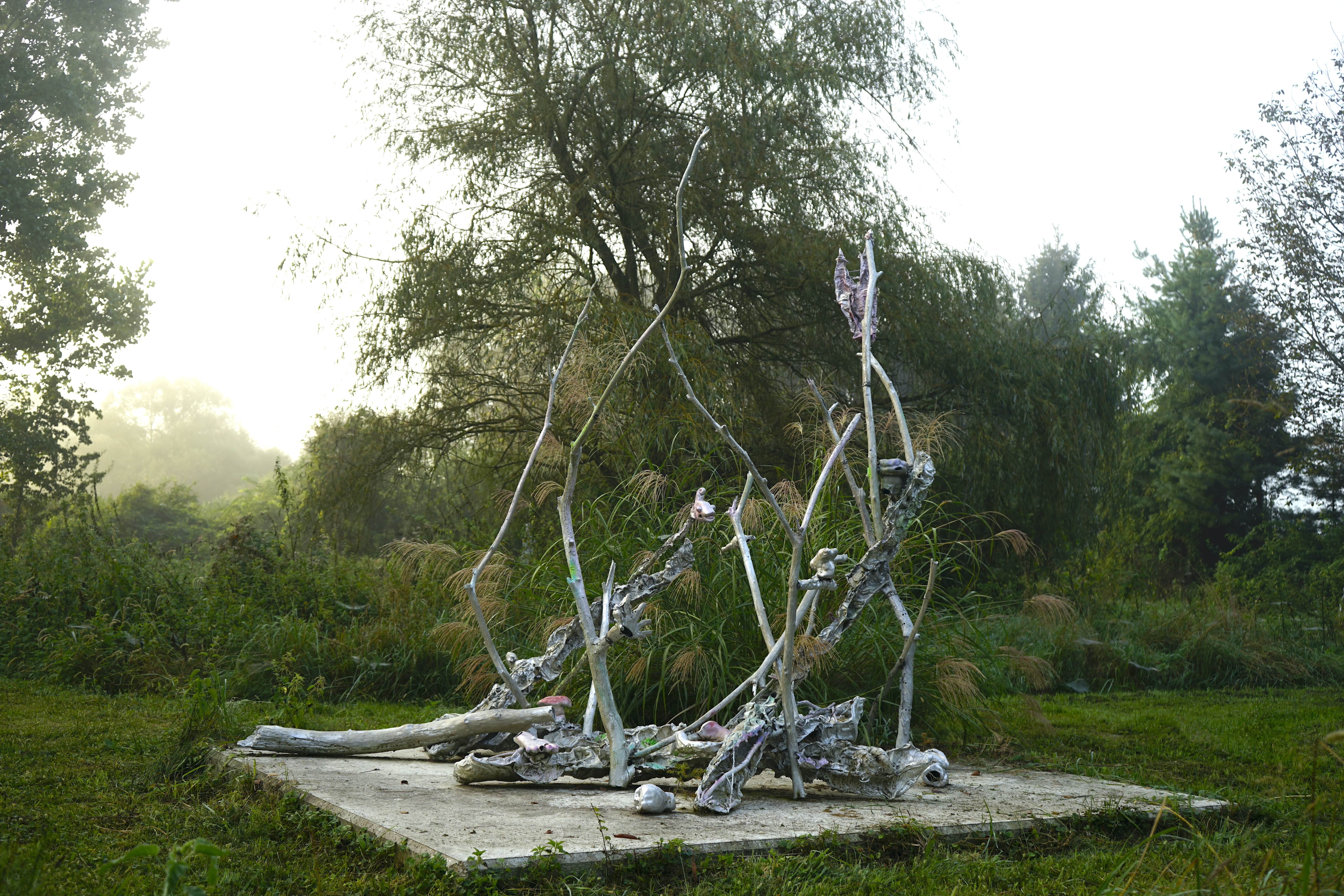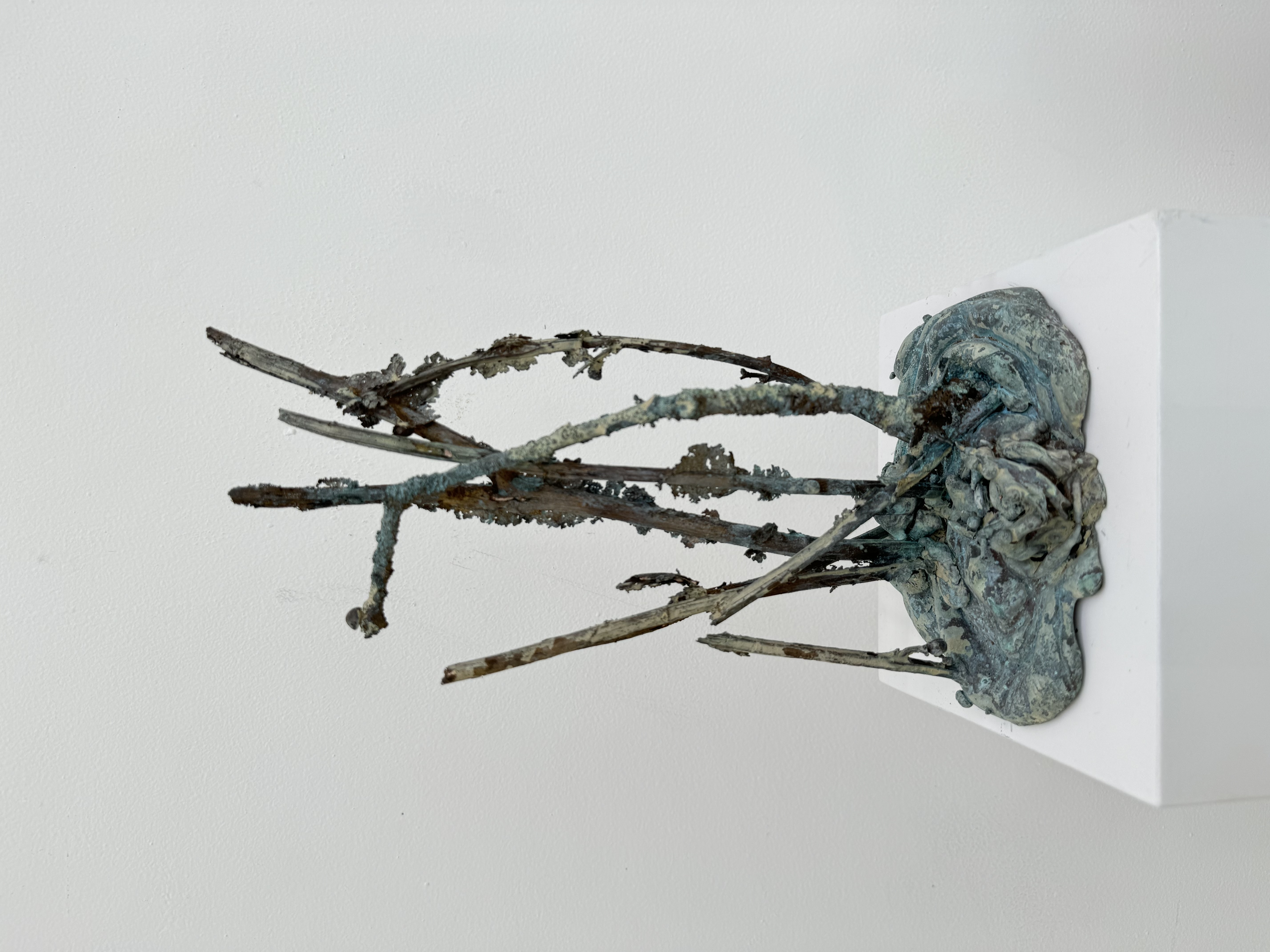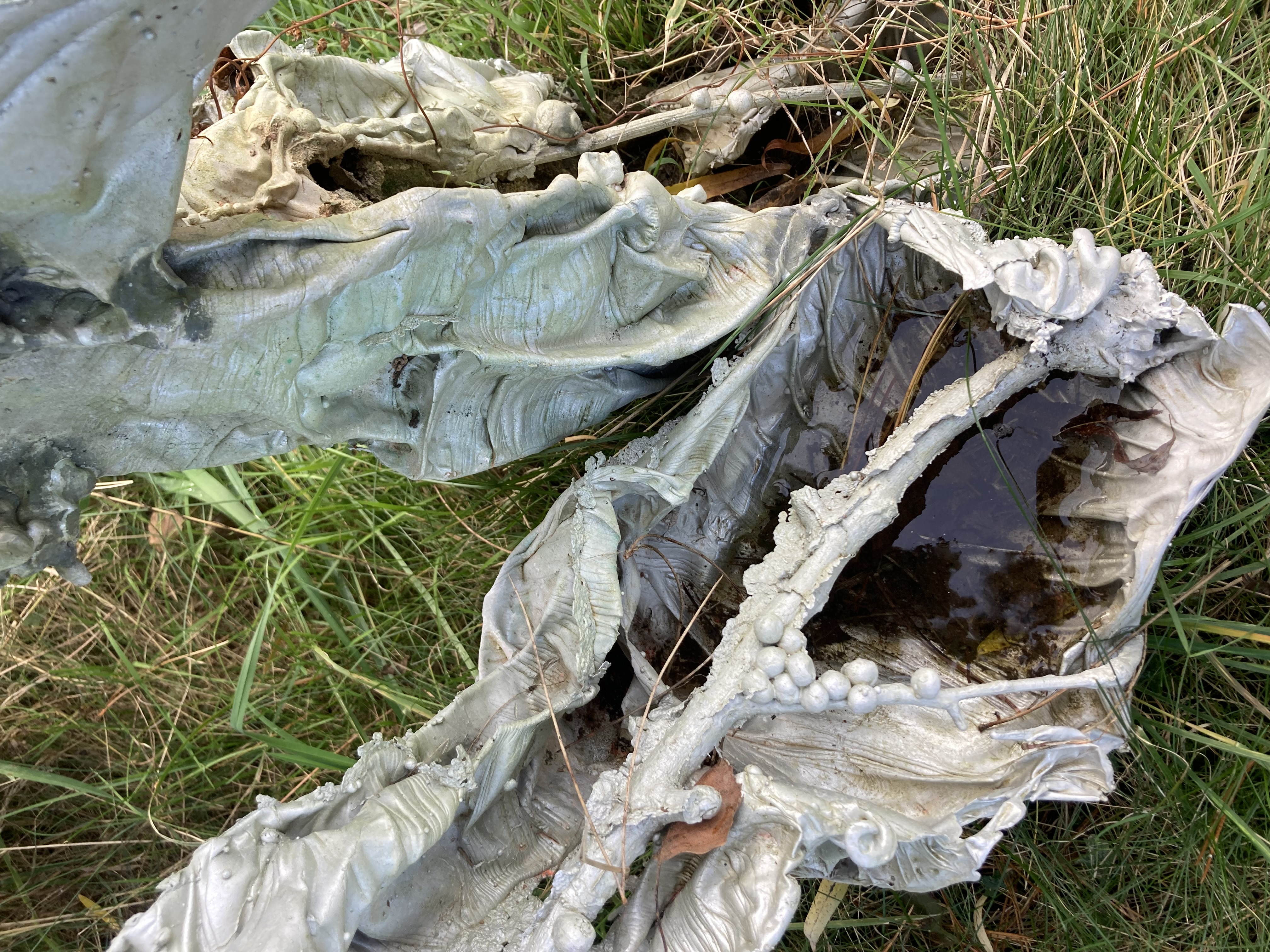Tümpel
Pond Project
The pond project was initiated by Karl Karner to promote the creation of new wet zones and natural areas. In co-operation with the Kandlhofer Gallery and the Styrian Nature and Biodiversity Conservation Union, a plot of land was acquired to be dedicated to this cause. In addition to the creation of a pond, an art project is to be realised once a year that deals with the area and its nature. The project can be supported by purchasing one of the sculptures from Karl Karner's pond series, which are also reminiscent of those landscapes in their appearance. The proceeds will be invested entirely in the realisation of this project.
News:
realization of the pond: May 2026 (more information soon) first artistic intervention with Gelitin: 7. August 2026, HochSommer Art Festival

There are hardly any habitats in which such a variety of living organisms can be found in such a small space as in ponds, lakes, streams and rivers. The reason for this is the necessary adaptations to the special characteristics of these habitats. However, although inland waters are among the most species-rich habitats, these valuable ecosystems have largely been lost. Many of them have been destroyed and those that remain have been altered to such an extent that they have been destroyed as habitats.






Eine kleine Geschichte des Geldes
Zuerst war das Geld aus Holz. Aus einem trockenen Stück Holz. (Früher stand der Baum im Saft, da wurde ihm das Wasser entzogen, damit er Geld werden konnte). In dieses Holz schlug man Kerben. Es war ein Kerbholz. Die Kerben bedeuteten: Ich schulde dir ein Schaf. Mit diesen ins Holz gekerbten Schulden konnte man Handel treiben und Dinge kaufen.
Danach war das Geld aus Bronze. Dazu wurde Holz verbrannt, um Kupfer und Zinn zu schmelzen. Das Metall musste flüssig werden, damit es zu Bronze werden konnte. Die flüssige Bronze musste fest werden, damit sie zur Münze werden konnte. In die Münzen wurden die römischen Kaiser geprägt.
Dann war das Geld aus Papier. Dabei war der Teufel mit im Spiel. Mephisto kam auf die Idee und Faust machte mit. Sie verwandelten Papier in Geld, damit sie es drucken konnten. Was sie auch noch taten: Sie verwandelten Wasser in Land. Sie drängten das Meer zurück. Das Meer musste trocken werden, damit die Menschen zu Geld kamen.
Im Geld sitzt ein mehr!, das das Meer zurückdrängt. Im Geld sitzt ein mehr!, das fließen will. Geld will strömen.
Aber das Geld hat sich das Flüssige nur geliehen. Das Geld ist ein Papier, das Bronze war, das Holz war und die Kerben im Holz bedeuten:
Ich schulde dir einen Tümpel.
Text: Lea Wintterlin

